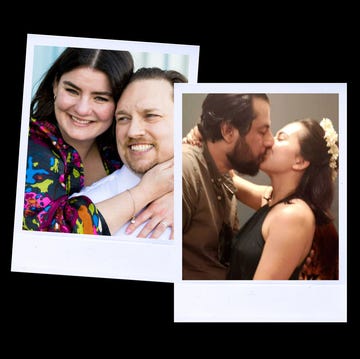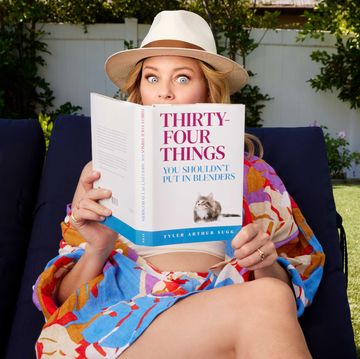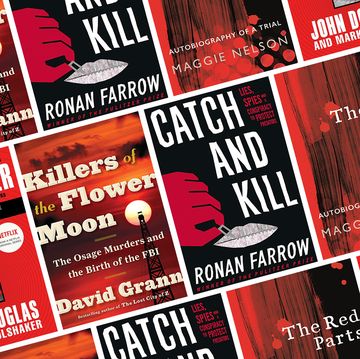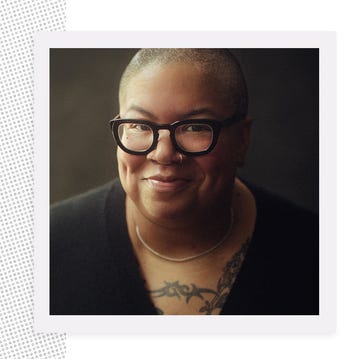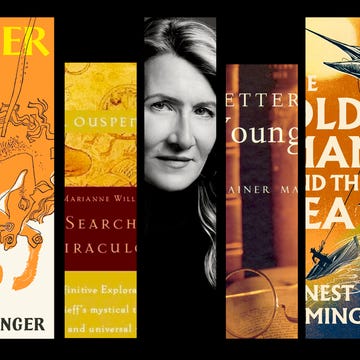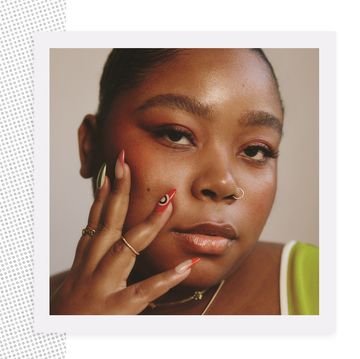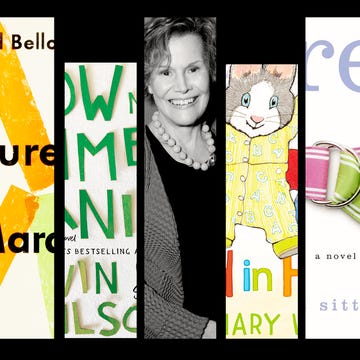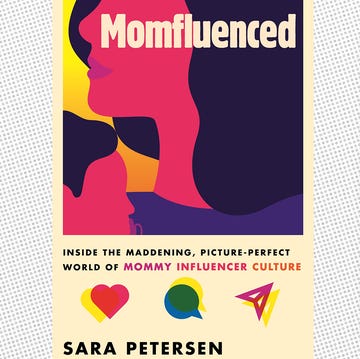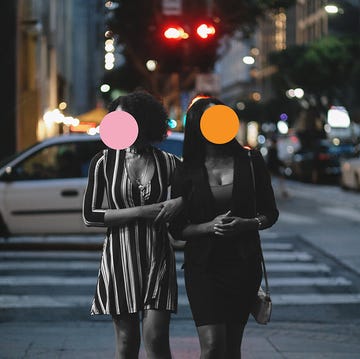I met Jake Alton for the first time at a club in downtown LA. Password protected, private, the perfect place to discuss my future, he said. I carried my phone, debit card and license in a cheap silver clutch that matched my dress, also metallic, also cheap, loose everywhere but my ass and nipples. They tented the fabric like bones.
“You sure, hon?” the driver said when he dropped me off. Around us: broken buildings, streetlights either dead or flickering on their way. I wasn’t sure and felt uneasy for a moment. But successful entrepreneurs say yes to any potential opportunity. And sometimes that’s uncomfortable. I pointed to a line of people hunched outside a green metal door. “I think that’s me,” I said.
Music roared behind the door. I stood near the line, but not in it, and texted Jake, “Here.” Thumb on the screen, I waited, worrying about my age, the date on my license, the fake ID I didn’t have. I had just turned 19 and my body still looked like a girl’s body. Which Jake said wouldn’t be a problem.
Minutes passed and no response. I felt watched by the people in line, judged, like they might assume I thought myself better than them, standing apart as I was. I folded one arm over my chest and scrolled my phone, considering how to appear casual, chill, considering what TV show, movie, Instagram feed I could draw from to appear casual, chill. Anything but awkward or worse, anxious; anxiety, to me, was my mother’s purview.
“You’re pushing me away,” she had started to complain after our trip to Los Angeles. At first, I reassured her with lengthy descriptions of my business plan (gain followers, get sponsors, make money), and promises to text her every day. But the last time she said it—you’re pushing me away—I didn’t look up from my phone. She snapped her fingers at the space between my face and the screen. “Anna,” she yelled.
“You simply can’t stand that I’m not like you,” I told her, my voice matter of fact, cold.
Alone and jacketless in the desert night, I shivered. The line was getting longer. Still scrolling, I walked to the end of it and took my place behind a group of girls, two guys in tow. They all turned to look at me, then back to each other, and the silver dress, which at home in the small and streaky bathroom mirror had looked expensive, felt cheap the way I knew it was. I checked my phone for Jake again, saw nothing and thought of catfishers, scammers, stories of stupid girls, too eager to be wanted, too easily punished for it. But then, a buzzing. A blue bubble and in it, Jake’s name. “Don’t get in line,” he wrote and washed me in relief. I saw him appear at the door, saw him from beyond all those waiting bodies. He held a hand up high and waved me to where he was. I unfolded my arms, put my phone in my clutch, left the line, and went to him.
He wore a suit, the collar of his dress shirt unbuttoned, prayer beads on his wrists and laced loose around his throat. “You look hot,” he said and leaned in to kiss my cheeks. The feeling—his skin against mine—thrilled me, scared me, thrilled me again. I tried to see his face, but all I saw were flashes: fabric and skin. I had seen Jake’s account, though, the pictures of Jake’s face: chiseled cheekbones and his trademark tousled hair, worn most often in a bun atop his head. He was hot in a manufactured way. Soon I would be too. But always, I wanted to see him without a filter; for our entire time together, I would wonder what he looked like completely naked.
The bouncer waved us in, underhanded, his eyes fixed on the line I’d left. Jake took my hand and his palm was clammy. I moved closer, close enough to eke heat, close enough to smell his Acqua Di Gió, which all the boys in my high school had worn. Jake was 29 but he reeked “fresh aromatic” like an 18-year-old, familiar, unthreatening. He led me down a narrow hallway, a dark canal that opened into vampiric light, house music and beautiful bodies arrayed in patterns that seemed ornamental, everyone with wet, parted lips and drinks in their hands. Like something from a movie, something I hadn’t believed existed in real life. But I had wanted it to be real, had surrendered my self-limiting beliefs, and now here it was, real. Girls on Instagram called this manifestation. Entrepreneurial gurus like Tony Robbins and Pat Flynn called it creating one’s own reality. The music swelled. Strobes timed to match it split the dark. So I could still see Jake’s eyes when he turned to face me, pewter blue contact lenses, too bright to be real, obviously fake. And almost bold because of it. But also basic, dated, especially next to the beads, the cologne. Though he didn’t seem to know it. I knew the truth and Jake did not and this gave me power.
Mine was, “the fickle power of teenage girlhood,” a temporary currency, according to my mother. Objectifying myself could never make me happy, she said, though she was wrong. Her version of feminism was outdated, too rigid to work in the real, digital world where I was in control of my body, my content, and smart to leverage the short blush of my youth for what was permanent and sure: power like Jake’s, his power to sign and promote me, his power not to. His was a power shored up by money and other men’s power. His was the power of choice, the power to leave and not be left. Which was what I wanted. To transcend my mother’s fate, and mine. To make more of our abandonment, my father’s leaving. I wanted to turn the story around and choose how I spent my time, made my money, presented my body. I wanted the power that came with certainty, what was real, what was illusion. I wasn’t sure there was a difference, wasn’t sure there should be.
Jake led me through the club, walking with a languid gait, his shoulders rolled back so that his heart looked open and imperiled. We sat at a sticky banquette. There was a bucket on the table before us, champagne on ice, clean flutes on a tray. He poured me one, tipping the glass to stanch the foam, graceful in how he held the stem, which felt breakable in my hand, dangerous. I tried to look comfortable. Jake sat back and sipped, so I did also. We checked our phones, turned them face down, checked again, sipped again. A waitress brought tiny strawberries on a platter and Jake plopped one into my champagne. It fizzed at the bottom until I swallowed it whole and poured myself another glass. Jake talked about his latest trip, to Peru, where he had done Ayahuasca and “seen the point of it all.”
“I’m telling you,” he said, “something clicked in my brain, like a new neural pathway. Like, before I would have looked at you and seen your hair, you skin, your smile, your eyes, your whole ascetic.”
“Aesthetic,” I said.
“Anyway, now I see your soul, and the fucking crazy thing is, it’s my soul too.”
We were, Jake said, as all humans and animals and plants and life forms were, part of the same consciousness, divided at birth into independent bodies. He touched his collarbones, his pecs. He tapped his phone and was silent for a beat, checking. He turned back to me, touched my leg.
“It’s all an illusion,” he said, and I knew he was making a commitment, telling me this mindset informed his managerial skills, which he called “conscious” and “nurturing.”
I was humoring him when I nodded, smiled, told him he was right. I was playing a part to get to his power, measuring every move I made against moves I’d seen other desirable women—girls—make: the way Daul Kim leaned forward for the camera, swan-necked and skinny-armed; the way Kendall Jenner touched her fingers to the tip of her shoulders, turned a cheek, and glowered. My body was the result of those other women’s bodies, and now the club itself, which had closed around me and altered what power meant to me, what it looked like, and who I was willing to become, to make power my own. This was experience, adulting, trying on roles, creating my own reality. A reality in which Jake, who had at first seemed corny and canned, was starting to glow, a twilit vampire, his skin like a little girl’s fantasy of paternal love, always beaming.
“Let’s get out of here,” he said and stood, pulled me up with him. I followed him back through the crowd, back down the dark canal and into a night that was brighter now, a sort of daylight.
On the curb, Jake called an Uber with one hand and brushed my ass with the other, casual. I checked my Instagram and leaned toward the cup of his palm. My last post, the picture of my nearly naked body, the bougainvillea from my walk, had earned 627 likes, twenty comments. I’d received seven DMs since Jake’s, monosyllabic messages from gamer guys and faceless bots and old men whose grids were stacked with expensive cars. “Hey,” they wrote and “question . . .” and “pretty” and “love your page.” I tapped each one and hearts rose up.
A bright blue BMW arrived. Jake held the door. I tucked my phone into my clutch and we lowered in.
“You’re going to the Rainbow Room, yeah?” The driver wore sunglasses despite the night.
Jake said, “Yeah, bro,” and put a hand on my thigh. I looked to the front seat, the driver’s invisible eyes. Jake’s hand inched higher. Blood beat from my knees to my crotch and I turned to face him. The car pulled to a stop. He took his hand away.
Inside the Rainbow Room, there was a fireplace, a bar. “A lot of famous rockers hang out here,” Jake said. In booths aging men with long gray hair huddled, the air above them ringed in smoke. Like the people in wolf costumes who roamed Fairy Tale Land and waited tables at Red Riding Hood’s Roadhouse, where my mother had ordered cheap wine for us both. It arrived in shapely plastic flagons, an adult beverage we both knew I was too young to drink. But I drank it anyway, and she let me, a sly smile on her face as the room warmed and we both began to giggle.
“I love it here,” I said to Jake. It was the right thing to say.
“You love it,” he said and asked if he could kiss me. I told him yes. His mouth was like Dentyne Ice, mezcal. Like putting myself in front of the camera, like thousands of likes piling up, hundreds of comments—
@inesbnld: 😍😍😍
@delphinegendron: Beautiful ❤️
@Love_Certified: Amazing! 💖
@Under_the_influence_reality: Iconic!!❤️
@sebahormazabal: 👍👌
@mr.nearlynice: Nice
@maeda346: So nice
@cameron_paul: Sweet and pretty :)
@wells_spring_viiana: eu não pego ninguém mesmo, não vai fazer falta kkkkkk
@Dr_6689: You’re so beautiful
@kellykimmyjames: 🖤🖤🖤🖤♥️🖤🖤♥️
@storevast: Astonishing
—All of them confirming that I was right, had played the game right. I was the best, most beautiful, sweet and pretty, astonishing and iconic. A victory, that I could be all these things when my mother could not. And a sign of how clueless she was about where power truly lived. Social media was causing depression, she always said, suicide. Thousands of girls. Yet I was in Jake’s mouth, alive.
“You’re perfect,” he said and held up his phone. I sprawled on a burgundy booth for the photo, crossed my legs, angled my body to look curvier.
“Yeah, like that,” Jake said. “Okay, now look up at the wall.” I looked at cobwebs and cigarette stains, framed photographs of shirtless men in big hair, bell-bottoms.
Jake said, “Perfect.” I put a finger in my mouth.
“Baby,” he said, and I felt certain that this was who I could be, perfect, baby. Backed by one hundred thousand hearts.
Adapted from Aesthetica, by Allie Rowbottom, published by Soho Press.
Allie Rowbottom is the author of the New York Times Editor’s Choice memoir Jell-O Girls. Her debut novel, Aesthetica, is forthcoming from Soho Press in November 2022. Rowbottom's essays and short fiction can be found in Vanity Fair, New York Tyrant, Flaunt, The Drunken Canal, Alta, Lit Hub, No Tokens, Bitch and elsewhere. She holds a PhD in literature and creative writing from the University of Houston and an MFA from the California Institute of the Arts and lives in Los Angeles.




